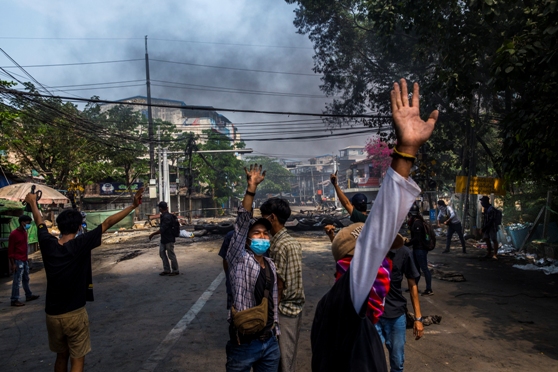Myanmar announces amnesty for thousands of anti-coup protesters
By Richard C. Paddock
YANGON – Myanmar’s ruling junta announced Monday (18) that it would free more than 5,600 anti-regime protesters this week in its first significant release of political prisoners since seizing power in a Feb. 1 coup.
The junta said it was granting the prisoners amnesty to mark the Lighting Festival, a three-day holiday that begins Tuesday (19). But it gave no indication of whether top officials of the ousted civilian government, including its leader, Aung San Suu Kyi, would be among those released.
Most of the protesters were arrested during a brutal crackdown this year as millions of people took to the streets and staged a national strike. Soldiers and the police killed more than 1,170 protesters — often by shooting them in the head — and have detained more than 7,300 others, according to the Assistance Association for Political Prisoners, an advocacy group.
In recent months, the military has successfully suppressed street protests, but it faces frequent guerrilla attacks in cities. It is also clashing with newly formed rebel units in outlying areas, including Chin state, where witnesses say the military is building up forces.
The announcement of the amnesty came just days after the Association of Southeast Asian Nations, of which Myanmar is a member, announced that it would exclude the head of the junta, Senior Gen. Min Aung Hlaing, from an upcoming meeting of regional leaders.
The 10-member association, commonly known as ASEAN, rarely interferes in the affairs of member nations, but it appears to be making an exception with Myanmar.
In April, the leaders met to discuss the coup and invited Hlaing, seemingly recognizing him as Myanmar’s leader. They agreed on a five-point plan calling on the regime to end the violence immediately and subsequently appointed an envoy — Brunei diplomat Erywan Yusof — who was expected to visit Myanmar.
But Myanmar has refused to let him meet with Suu Kyi, who is under arrest and faces trial on numerous criminal charges, and the envoy has yet to visit the country.
Aaron Connelly, a research fellow at the International Institute for Strategic Studies in Singapore, said that it was too soon to know whether the release of prisoners was a response to ASEAN’s seemingly tougher attitude.
Myanmar often frees large numbers of prisoners during amnesties, he noted, and the regime’s intentions may not be clear until more details about the release are known.
“We’ll have to wait and see who was released in the amnesty, which is an annual ritual,” Connelly said. “If they decide to release some bigger-name NLD officials or resistance leaders,” he added, referring to the National League for Democracy, Suu Kyi’s party, “then I’d think it was at least partly a response to ASEAN pressure. But that seems unlikely to me.”
The regime’s announcement on Monday came in two statements that said it would drop charges against 4,320 people awaiting trial for their role in the protests and free 1,316 others who had been convicted. The junta said it was acting “out of respect for the humanitarian cause.”
-New York Times


